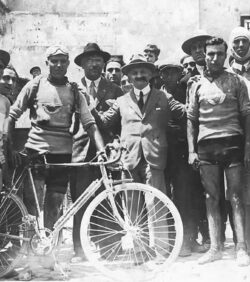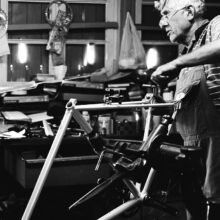In Search of
Sustainability

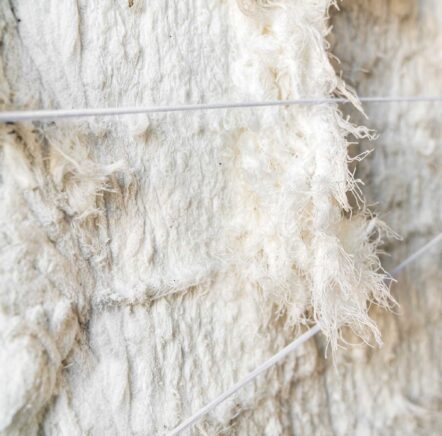
There’s a limit to the availability of natural resources. We need to change our approach to raw materials to make sure that not only we, but also future generations will be able to live well. We are enthusiastically committed to sustainable production and resource-efficient consumption, but have come to realise that this is a feat that demands our heart and soul.
If you decide to eat more responsibly in terms of environmental impacts, producers and your own health, that’s relatively easy to do: You research the most common labels, choose producers or dealers you trust and switch to a balanced diet.
Sustainability labels can also be found in fashion – plenty of them in fact. But finding out what exactly they stand for isn’t that easy. And sustainability in the textile industry is highly complex, among others because the production chain from the fibre to your wardrobe is very long. By the time you place an item of clothing into your shopping basket, it has (or its raw materials respectively have) gone through many, many processing steps.
And production conditions need to be analysed at each and every step: Are contaminants left behind in the environment or textiles? What environmental impact does the production step have, for example on the region’s water supply or water quality? What conditions do employees work in? How about their workers’ and human rights? What environmental impact does the textile consumption have that we engage in? What sort of development stimuli do we provide through our production?
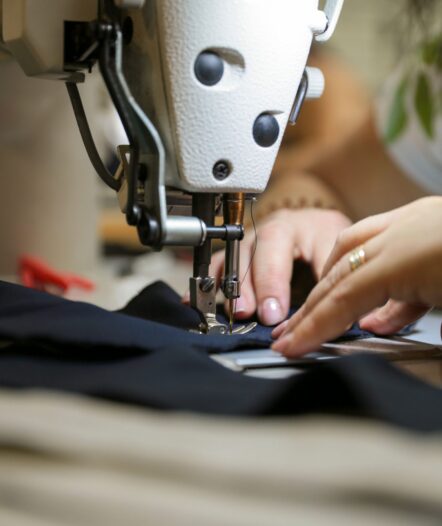
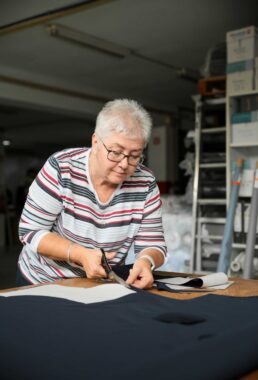
With care and attention to detail: Our clothes are made by small studios in Portugal and Spain.

We want to produce as sustainably as possible. We want slow fashion, not fast fashion. What does that mean? We work specifically with high-quality textiles that have been sustainably and fairly manufactured and offer greater durability. We use fabrics made out of upcycled, recycled or organic materials. We only buy from trustworthy producers who guarantee environmentally sound, fair production and are appropriately certified. We manufacture in Europe, working with small studios we know personally. Our next step would be to have our manufacturers certified, but that’s something we can only do in collaboration with them. We work towards optimal sustainability in our sales, optimising product miles and minimising energy consumption. Finally, we ensure that our conduct is aligned with the ten principles of the UN Global Compact.
We want to produce
as sustainably
as possible.
We want
slow fashion, not
fast fashion.
You can do your bit towards greater sustainability: Don’t buy fast fashion. Do your laundry as environmentally efficiently as possible and don’t use your tumble dryer if you can do without. Wear your clothes as long as possible to optimise their eco-balance.
Our journey has only just started. We’ll learn so much more as we go. We’re always open to your suggestions!
Make sense!

